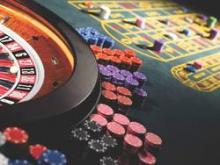Patients with sexual addiction and patients with gambling disorder share some psychopathologic features and sociodemographic traits that are not found in healthy control subjects, a study showed.
This finding supports the argument that sexual addiction “should be classified more closely to other behavioral addictions such as gambling disorder,” said Dr. Josep M. Farré of Hospital Universitari Quirón-Dexeus, Barcelona, and his associates.
However, patients with sexual addiction are different from those with gambling disorder in their personality traits, particularly with regard to responses to novelty. Both of these disorders “could benefit from ‘transdiagnostic’ treatment programs aimed to improve the character trait ‘self-directedness,’ since it is a factor associated with various personality disorders related to behavioral addictions,” the investigators said (Compr. Psychiatry 2015;56:59-68).
In what they described as the first study to examine the similarities and differences among these two clinical groups and healthy controls, Dr. Farré and his associates assessed during an 8-year period 59 patients seeking treatment for sexual addiction, 2,190 in treatment for gambling disorder, and 93 healthy volunteers who resided in the same geographical area as the clinical participants.
The mean age of the study participants was 42 years. Most (90%) were men, and approximately half were married or living with a partner.
All the study participants underwent a comprehensive battery of evaluations in face-to-face clinical interviews to measure sociodemographic characteristics, general psychopathology, personality traits, and gambling and sex behaviors.
Patients with sexual addiction had scores on all the scales of the Symptom Check List–90 Items–Revised (SCL-90-R) that were very similar to those of patients with gambling disorder, and both groups had significantly different scores from the control subjects. The two patient groups were very similar for somatization, obsession-compulsion, interpersonal sensitivity, depression, anxiety, hostility, phobic anxiety, paranoid ideation, and psychoticism. They also showed similar symptom intensity and similar overall levels of psychological distress.
In addition, patients with both disorders had similar scores, as well as significantly lower scores than healthy controls, on four of the personality dimensions measured by the Temperament and Character Inventory–Revised (TCI-R): reward dependence, persistence, self-directedness, and cooperativeness.
Both patient groups also showed similar scores for mood and anxiety problems. This is notable, the investigators said, because it has been posited that patients often use gambling to regulate negative emotions associated with stressful life events and frustration; sexual compulsions also are considered to be a mechanism for regulating negative affect.
The only sociodemographic variable that differed between sexual addiction and gambling disorder was socioeconomic status, which was higher in sexual addiction. In fact, high socioeconomic status was a major predictor of sexual addiction. “This could be explained by the fact that many patients with gambling disorder tend to have a low educational level and a low income,” Dr. Farre and his associates wrote.
Yet the two disorders differed from each other to the extent that personality traits could be used to distinguish between them. Patients with gambling disorder had notably higher scores than normal for harm avoidance, novelty seeking, and self-transcendence, while patients with sexual addiction had higher scores for harm avoidance only and had low scores for novelty seeking. Also, patients with sexual addiction had low scores on persistence, compared with those with gambling disorder, indicating poorer perseverance and more difficulty managing frustrations.
Patients with both disorders would benefit from treatment aimed at increasing internal locus of control, learning to take responsibility for one’s own decisions, increasing planning capacity, and improving perception of self-efficacy and satisfaction with one’s abilities. Patients with gambling disorder should aim for improved self-control strategies and emotional regulation, while those with sexual addiction should focus on improving interpersonal relationships and deficiencies in socialization factors such as cooperation, empathy, and tolerance.
Patients with sexual addiction also would benefit from enhancing their ability to identify potentially hazardous conditions and to foresee the negative consequences of certain decisions, the investigators said.
The investigators cited several limitations of the study. One is the cross-sectional design, which they said, did not allow them to make causal inferences. Also, the sample sizes of the three groups were not balanaced.
Nevertheless, they said, their findings expand the understanding of sexual addiction, a condition “that has not been studied in depth,” which in turn opens up new directions for future research.
This study was supported by Fondo de Investigacion Sanitaria of Spain, Ministerio de Economia y Competitividad, and Generalitat de Catalunya. Dr. Farré and his associates did not report their financial disclosures.


